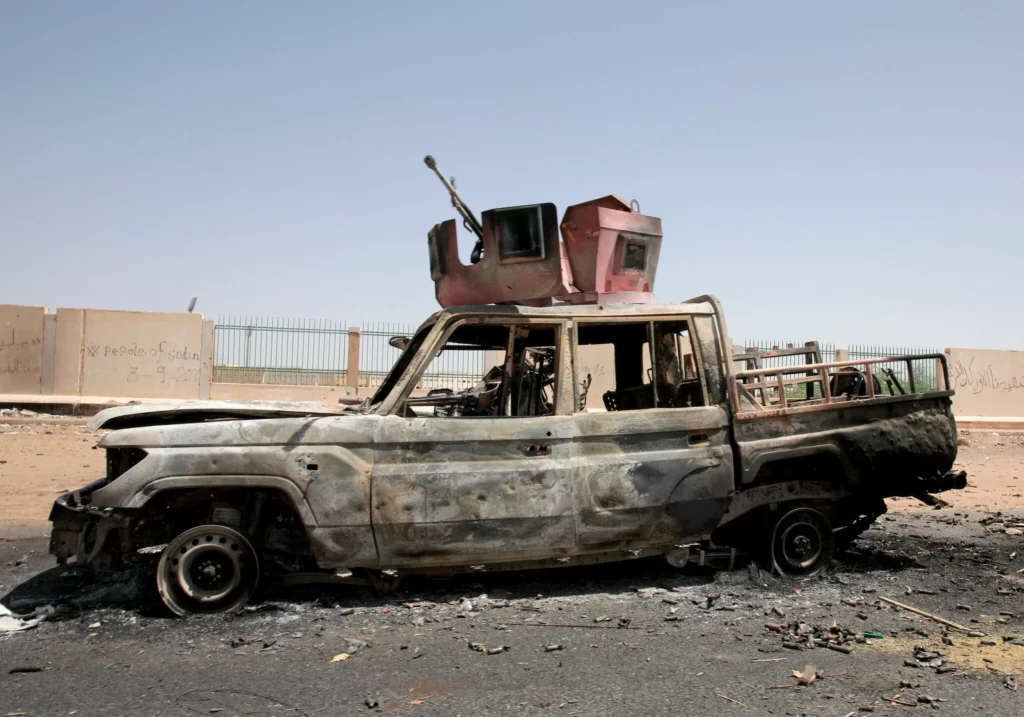Last week, fighting broke out in Sudan between the army and a potent militia group, the Rapid Support Force (RSF), as the country transitions from a military dictatorship to a civilian democracy and the RSF is absorbed into the army. Girish Linganna provides a report

Indians continue to flee violence-stricken Sudan. Indians were among the 388 individuals from 28 countries evacuated by France on two aircraft late Sunday night. Sunday, Saudi Arabia announced that it, too, had evacuated a small number of Indian nationals.
As part of its contingency evacuation preparations, India has positioned two heavy-lift military transport aircraft in the Saudi Arabian city of Jeddah and a naval ship in a key Sudanese port. Prime Minister Narendra Modi conducted a high-level meeting on Friday and instructed officials to begin the evacuation. Attending the meeting were National Security Adviser Ajit Doval and Sudan Ambassador BS Mubarak.
Last week, fighting broke out in Sudan between the army and a potent militia, the Rapid Support Force (RSF), over the transition from a military dictatorship to a civilian democracy and the incorporation of the RSF into the army. The cashes have caused over 400 deaths and numerous injuries.
EMBASSY IN FIGHTING ZONE
The Indian Embassy in Sudan is open and functioning, but there is no staff there because the building is close to the airport in Khartoum, which, according to the government, has seen intense battles between the forces loyal to Sudanese Army chief Abdel Fattah al-Burhan and his deputy, Mohamed Hamdan Daglo, who leads the RSF.
THE WINDOW ON THE STORM
Everything revolves around internecine conflict between two antagonistic factions — the Sudanese army and the RSF. Sudan has been under the military authority of de facto leader General Abdel-Fattah Burhan, the coup’s mastermind, since a coup in 2021.
This transitional government was established two years ago, following the ousting of longtime dictator Omar al-Bashir.
The RSF is commanded by General Mohammed Hamdan Dagalo, a.k.a. Hemedti, who has assisted the Sudanese army in maintaining its position.
After Bashir’s ouster, plans were formulated for a change in the country’s political direction that was to usher in elections by the end of 2023. Burhan pledged a gradual, irreversible transition to civilian rule. It appears, however, that neither Burhan nor Dagalo intended to cede power.
Since April 15, 2023, an inevitable violent power struggle has been ongoing. Since then, the RSF and Sudanese forces have engaged in fierce gun conflicts in Khartoum and throughout the country. The violence has escalated over the span of the past.
Disagreement over how to incorporate the RSF paramilitary forces into the Sudanese armed forces has been at the heart of the recent power struggle. After the RSF began dispatching members across the country and to Khartoum without the military’s permission, tensions escalated.
The RSF has tightened its grasp on Sudan’s economic assets, particularly the country’s gold mines, which has contributed to the violence. Recent events in Sudan do not portend well for the country’s stability or its chances of transitioning to democratic rule.
STRONGMEN IN A FIGHT
In the early 2000s, Dagalo seized control of the RSF, heading the so-called Janjaweed militia responsible for human rights violations in the Darfur region.
Even as former Sudanese President Bashir perpetrated nameless, impersonal violence against the people of Darfur and was later charged with “crimes against humanity” by the International Criminal Court (ICC), the Janjaweed were also held responsible for genocide by the ICC. In this manner, Dagalo advanced.
As leader of the RSF, Dagalo was charged with overseeing a violent crackdown against pro-democracy activists in 2019, during which 120 demonstrators were killed.
Human rights organisations have criticised the military commander severely for Burhan’s actions. Over the past two years, as chief of the ruling army and de facto head of government, he has overseen a crackdown on pro-democracy activists.
Burhan and Dagalo could be viewed as impediments to the Sudan’s transition to a civilian democracy. However, it is predominantly a struggle for individual authority.
According to an African adage, when elephants battle, the grass is trampled.